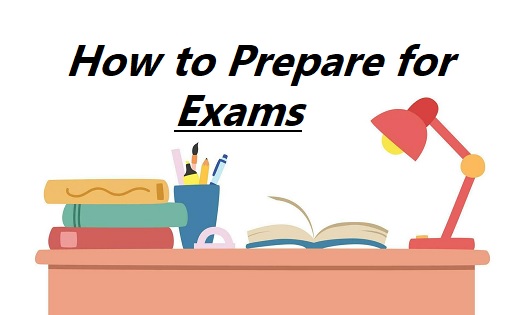A Stress-Free Guide on How to Prepare for Exams
Preparing for exams can be a daunting task, but with the right approach, it can become a more manageable and even rewarding experience.
Study refers to the process of acquiring knowledge, skills, or understanding through reading, research, practice, or experience.
Study methods can vary widely and may include activities such as reading textbooks, researching online, attending lectures, taking notes, practicing problem-solving, and engaging in discussions.
The term “study” is commonly associated with academic pursuits, but it can also apply to the process of learning in various contexts, including professional development, personal enrichment, and skill acquisition.
In an academic setting, students engage in study to prepare for exams, deepen their understanding of coursework, and acquire the knowledge necessary for academic success.
Effective study habits often involve a combination of active learning, organization, time management, and critical thinking.
- Create a realistic study schedule :
The first step to successful exam preparation is creating a realistic study schedule. Break down your study sessions into manageable chunks, considering the subjects you need to cover. Allocate specific times for each subject, and make sure to include short breaks to avoid burnout. - Gather Your Study Materials :
Before diving into your study sessions, ensure you have all the necessary materials. Organize your textbooks, notes, and resources so that everything is easily accessible. A clutter-free study space can significantly contribute to a focused and productive study environment. - Understand the Exam Format :
Familiarize yourself with the exam format early on. Know the types of questions you’ll face and practice with past exams or sample questions. Understanding the format will help you tailor your study strategies to the specific requirements of the exam. - Active Learning Techniques :
Engage in active learning by summarizing information in your own words, teaching concepts to someone else, or creating flashcards. Active learning not only reinforces your understanding but also makes the study process more dynamic and enjoyable. - Prioritize Topics:
Identify the most critical topics and prioritize your study time accordingly. Focus on areas where you feel less confident or need improvement. Breaking down your study sessions into smaller tasks can make the material more manageable. - Take Breaks:
Schedule short breaks during your study sessions to avoid burnout. The Pomodoro Technique, with 25-minute focused study sessions followed by a 5-minute break, is a popular method that helps maintain concentration and productivity. - Maintain a Healthy Lifestyle :
Ensure you’re taking care of your overall well-being. Get enough sleep, maintain a balanced diet, and stay hydrated. Physical exercise can also be a great stress-reliever and can improve concentration during study sessions. - Practice with Timed Conditions:
Simulate exam conditions by practicing with time constraints. This helps you manage your time effectively during the actual exam and reduces the likelihood of feeling rushed. - Utilize Study Groups :
Join or form study groups to discuss topics with classmates. Explaining concepts to others can reinforce your understanding and provide different perspectives on the material. - Seek Help When Needed :
Don’t hesitate to seek help if you’re struggling with certain topics. Teachers, classmates, and online resources can provide valuable assistance.

- Asking questions and seeking clarification early on can prevent confusion later in the study process.
- Stay Positive and Manage Stress :
Maintain a positive mindset throughout your exam preparation. Practice relaxation techniques, such as deep breathing or meditation, to manage stress. Focus on what you’ve learned rather than dwelling on what you haven’t covered. - Review and revise:
Regularly review your notes and materials to reinforce your understanding. Use the last few days before the exam for final revisions, focusing on key concepts, and practicing with sample questions.
In conclusion, preparing for exams doesn’t have to be overwhelming.
By following these practical tips, you can create a study routine that suits your needs, manage stress effectively, and approach your exams with confidence.
Remember, consistency is key, and a well-thought-out preparation strategy can make all the difference.
Good luck!












